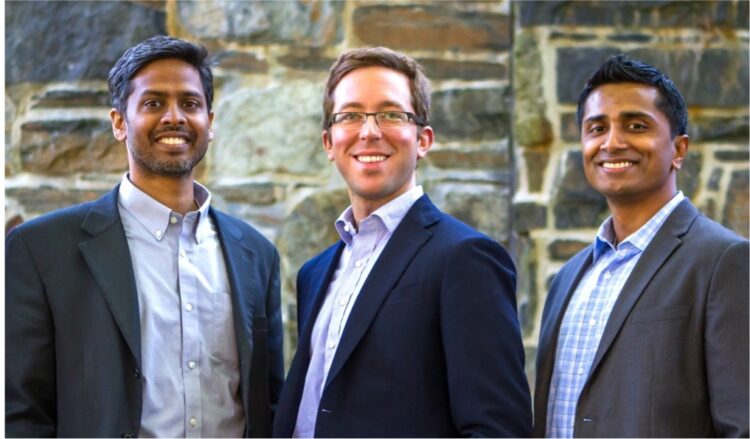To love one’s neighbor through investing is to promote human flourishing. But the concept of human flourishing is not always easily understood.
What is human flourishing? How do we achieve it? How do we help others achieve it? Is it the same for all people?
Dr. Anthony Bradley, chair of the program of Religious and Theological Studies at King’s College, describes human flourishing as
a holistic concern for the spiritual, moral, physical, economic, material, political, psychological, and social context necessary for human beings to live according to their design.
This multi-dimensional description rightfully shows us just how misguided it is to pursue using a unilateral approach to promoting human flourishing. It necessitates conscientious and constant engagement by individuals and communities in an array of habits and practices that promote their betterment.
One such practice is investing to promote a better world.
Even though only two of the contextual categories Bradley mentions—economic and material—are directly impacted by investment dollars, one could argue that investing indirectly impacts each of the other contexts as well.
The flow of capital has great power in shaping society. Efficient access to capital markets provides organizations with the capital they need to scale their operations, invest in innovative product developments, improve the quality of their equipment and facilities, hire and train a more productive workforce—all of which results in a context where human beings can flourish.
Creating demand in the bond market
When it comes to providing good businesses with the capital they need, we often think of just one type of investing—equity investing. But providing capital to businesses can be done in several different ways.
One of the least understood of these ways is bond investing. Though it is sometimes more obvious how equity investors can impact human flourishing, bond investing is just another way that investors can provide capital to businesses that are seeking to promote the common good.
But, in order to understand how bond investing can promote human flourishing, we must first understand how creating demand in the bond market works.
If a company is in need of capital, it will typically go to an investment bank for guidance in either selling equity of their company or issuing debt that the company will pay back over time. The investment bank will then perform a deep analysis of the company and determine how the company will be using the capital.
Once this analysis is done, the bank will advise based on the demand from investors to buy the stocks (equity) or bonds (debt) that the company is issuing. Hence, one of the most crucial roles of an investment bank is assessing the desires of investors.
So, investors play an important role in expressing what types of organizations and what types of projects they want funded by the bonds they are seeking to purchase.
Traditionally, it was assumed that bond investors held bond issuers to just one simple requirement—financial stability. Many bond investors, however, have begun to express the added desire to invest in companies that they believe are adding value to society by promoting the common good or—what Bradley would call—creating a context for human flourishing.
Aligning issuance with demand
As a way to align bond issuance with the demands of investors, new classifications for bonds have been created—green, social, and sustainability bonds. These new classifications serve as labels that allow bond investors to signal to issuers the types of projects they want to fund with their investment dollars.
According to the International Capital Market Association (ICMA), organizations seeking to be financed using green, social, or sustainability bonds have to meet certain requirements. The use of proceeds, processes for project evaluation and selection, management of the proceeds, and reporting are all scrutinized to ensure that the money will be used to achieve the investor’s intended goal.
Here are some examples of the objectives of the different instruments:
Green Bonds
- Renewable energy
- Energy efficiency
- Pollution prevention and control
- Sustainable resource and land use
- Water and wastewater management
- Climate change adaptation
- Eco-efficient products, technologies, and processes
Social Bonds
- Affordable basic infrastructure (clean water, sewers, sanitation, transport, energy)
- Essential services (health, education and vocational training, financing)
- Affordable housing
- Employment generation
- Food security
- Socioeconomic advancement and empowerment
Sustainability Bonds
- A combination of the foci of green and social bonds
The goals of these bonds are most often aligned with a broader set of goals set forth by the United Nations. The UN has identified 17 sustainable development goals that it believes society can pursue to make the world a better place:
While there are various approaches to measuring progress towards each of these goals, numerous ideas on how to achieve them most effectively, and differing opinions on the extent to which governments should participate in facilitating them, most individuals agree that pursuing these goals on a macro level is a loving approach to shaping our economic systems.
Beyond the labels
Classifying bonds as green, social, or sustainable is convenient, but bond investors have the opportunity to influence the way capital flows to businesses even if the bonds are not labeled as such.
In fact, many businesses and organizations contribute to a flourishing society simply by pursuing their core mission as a business.
Whether it is building out new technological infrastructures, improving the efficiency of shipping logistics, developing new energy technologies, researching new therapies for diseases, enabling homeowners to restore their houses, designing and building real estate properties that facilitate effective and productive work environments, various types of businesses can seek to meet societal needs.
Most of these businesses will need access to capital. And, for those businesses that choose to access that capital by issuing bonds, bond investors will have the opportunity to use their capital as a way to signal which types of companies and organizations they want to help succeed.
Conclusion
Capital markets have proven to be very efficient in moving capital from where it is dormant to where it can be put to work.
With this efficiency, however, has come great complexity.
And that complexity has brought about confusion, leading many investors to lose sight of the incredible impact their investment dollars can have on society.
As people, we grasp the idea of how to love our neighbors in most areas of our lives, and we generally want to live in a way that actively contributes to a better world. As investors, particularly bond investors, we have goals of generating a reliable income, mitigating interest-rate risk, and avoiding losing capital. But we are also people with desires of creating a context that is conducive for human flourishing.
Thankfully, our financial goals and societal desires do not have to come at the expense of one another. On the contrary, they often work in tandem with each other, that is, companies and organizations that are meeting important human needs might just be poised to be good financial investments in the long-run.
Contributing to a context in which humans can flourish is a deep human desire. Businesses and organizations are powerful engines that have the ability to help shape this context and investors, in turn, have the ability to influence the flow of capital and choose the types of businesses they want to succeed. What is more, bond investors have a unique and exciting ability to use their bond investments to seek to contribute to human flourishing or find a bond manager that will do so on their behalf.




















